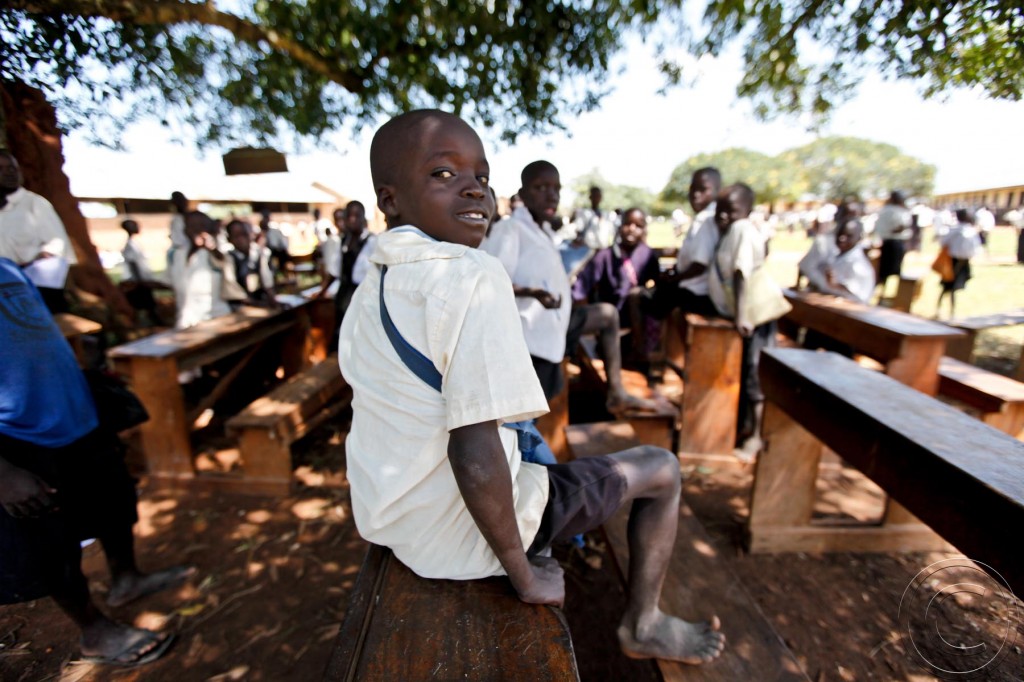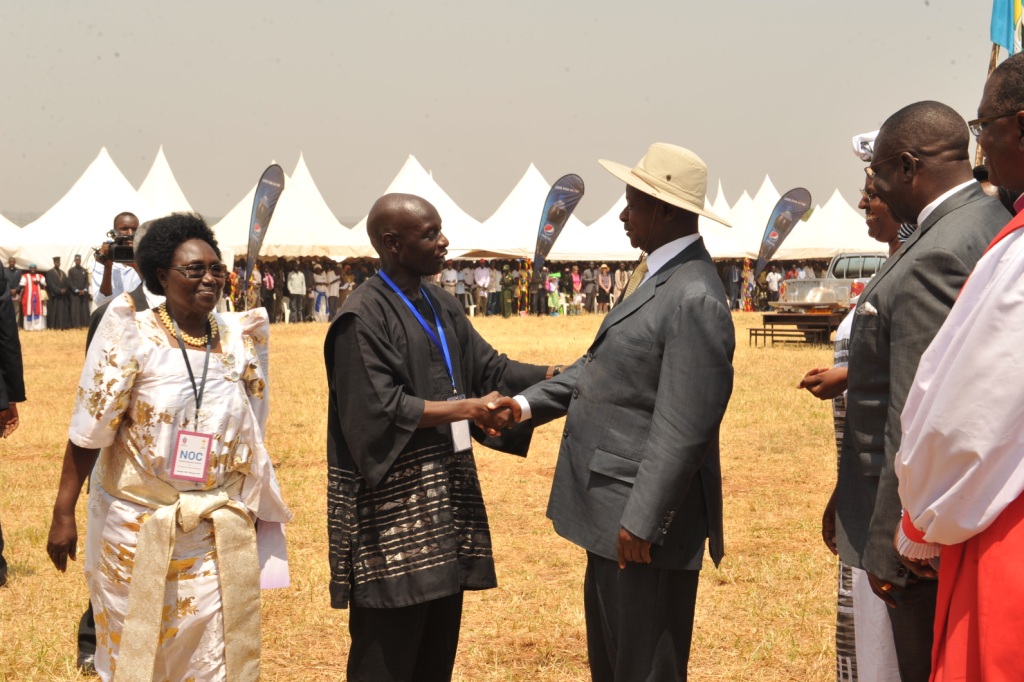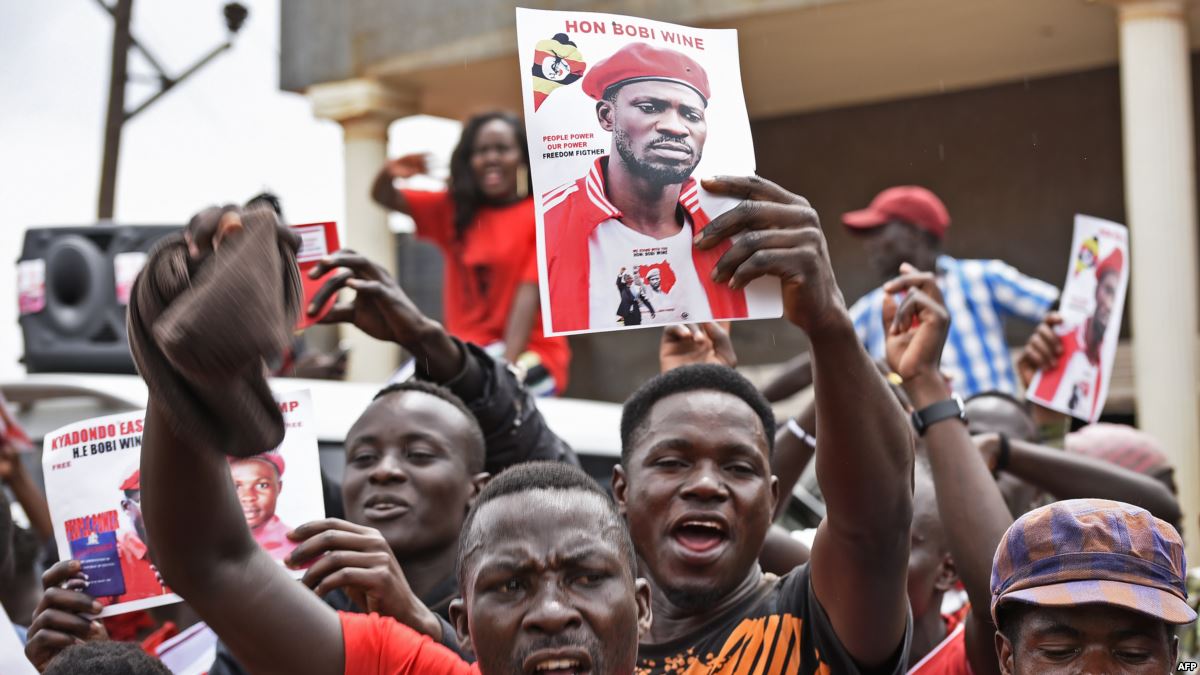Once upon a time in secondary school – a teacher, no doubt one of those who liked a full display of his grasp of political history dropped the term “political kwashiorkor” like a bombshell. Back then teachers were gods. So, standing in full adulthood before a class, trouser, belt and polished shoes, when this teacher exploded the term “political kwashiorkor”, the shrapnel travelled wide and cut deep. This must be why decades later it arrived with clarity and unannounced on the doorstep of a question on Uganda’s so-called path to political transition.
The proposition was simple really.
Kwashiorkor is a condition caused in part by the over-reliance on low protein diets ( amongst others). These single diet tyrannies such as maize, cassava or potatoes without sufficient protein is what causes the symptoms commonly associated with kwashiorkor such as fatigue, diarrhea, loss of muscle mass and damaged immune systems.
These analogies exist in politics.
Healthy public life, as the wisdom of the democratic era demands, is a process of contestation amongst opposing politicians reflecting the balance of views that are then fed to the electorate during an election. Within the administration of government, which a successful party takes over, is also a set of institutions whose performance by design is based on being in opposition to one another – as a part of a system of checks and balances. No single institution should be too powerful in practice is the logic. Not the courts or parliament and not the Executive who enacts policy and implements it through the supervision of the civil service.

It is in the greater north of Uganda that the advent of a single political diet led to political crisis after independence. It is always a sign of bad times when the political diet is uniform. Political Kwashiorkor sets in corrupting public institutions and weakening their immunity. There is diarrhea of public funds defecated into private coffers, public fatigue with non-performance and broken promises, loss of capacity of institutions even if there are more of them – the less they do.
As it is leaders having monopoly of power and being accountable to only themselves make a mockery of the pursuit of justice. Wasteful commissions of inquiry institutionalize impunity because the same interests sit on either side of an investigation and its outcome. New public policies, no matter how controversial, are met with praises and the stamp of public approval as a herd mentality is whipped up by supporters in the media and surrogates in the world of opinion.
A society of praise, award shows, clapping, empty public speeches in which disaffection is considered a sign of jealousy – “ for the gains of the party has made” spreads like edema weighing down sources of public morality outside the political arena such as the church, mosque and academia.
It is not uncommon, when such a malady falls, for even private individuals to train their minds to adapt a language of inherited affection for these abnormalities. In particular an intellectual cancer sets in where rulers try to separate the operation of politics, where they dominate, from the social economy. Critics become enemies of development as if the latter is delinked from the operation of politics itself. In fact, economic enemies are actualized as those opposed to the policies of the establishment even where it is obvious such policies such as top-heavy government, runaway corruption, unchecked public debt, land grabbing, money laundering and overall interference with justice are the reason the economy suffers.
Still these narrative flourishes because in a political monopoly corruption is in effect the creation of two realities – one in which the rules apply only to rulers and the other in which the interests of those rulers are enforced as concomitant with the interests of the state and the public. To oppose the consequences of poor government becomes effectively a crime against the state because the party cannot do wrong- it can only “make mistakes”.
And so, in the hopeful days of the 1960s, and once the Uganda People’s Congress (UPC) was dominant in parliament, the management of public affairs started to feel like a middle-north affair. The concentration of political authority in the north – there being no viable opposition led to unhealthy outcomes quite quickly. Under Idi Amin Dada a similar condition of a government camped in Nubian West Nile – as the perception went, brought all state, military and political authority in one region. In both cases this monopoly diet damaged the proper functioning of the state. It also marked a turning point.
It can be observed now with hindsight that a feature of Ugandan political evolution is that decay and disease always follow the concentration of power in one region by a political organization that is homogenous ( even ethnically). It also follows that evidence of such problems occurs when the power of the dominant group is more or less complete. That is when they face no opposition having imposed a single menu of power on the rest.
Sensible people are therefore rightly concerned Uganda has been on a single diet of political leadership for over 33 years with deleterious effects on public morale, resources and responses to communal challenges. The thing about political kwashiorkor in Uganda in that it is often discussed by the public as not as the curse of plenty but rather as a sign of positive momentum. The dominance of the NRM, for those who support it, is argued as stability -for example. One of its main contributions to the lingo is “steady progress” presented also as the absence of conflict and disruptions to the conditions that enable nation building. For what it’s worth the peristalsis of policy options has been painful but persistent. Attempts to grow the economy, expand access to education, health and government services have multiplied overtime.
However, the argument that all of this is growth without transformation must be seen in the same way a kwashiorkor stomach is not a sign of satisfaction and health. In fact, the darker secret of Uganda’s condition is not the presence of a single set of actors in power alone. It is also the reality that they face no real opposition. The lack of a counterweight to an emerging era of well entrenched, and even predictable, establishment politics shall have far -reaching effects on society, the economy and the state of institutions that culture the protection of public interest.
Uganda’s opposition is not absent. It is present without being consequential.
This is for a number of reasons. Firstly, the way parties are organized is mostly as a holding ground for presidential bids. The main promise of all political opposition is change from above not below. As mentioned earlier insisting only on leverage from a change of guard at state house damages any other form of alternative organization focused on social agendas and not weighed down by the politics of the presidential elections. It also injures parties like FDC, one of the large ones. In the race for representatives they become brands for the individual races of various MP hopefuls but thereafter no major agenda holds them together. So even within the parliament the party is diffuse and loose with the party leadership having less to no influence on Mps elected on its platform.
The effect of all of this is that the parties do not grow. Its presidential candidates enter a ring of contest where the incumbent is well prepared. The lack of a wider social agenda strips the party of well-grounded support while the failure to succeed at the presidential poll saps the morale of supporters. Repetition of this outcome since 2001 has also normalized the use of violence, has eroded any opportunities for social mobilization and enthroned transactional politics as a norm. Voters expecting nothing new see elections the way politicians do – as a chance to harvest money from candidates who go on to do the same during their tenure in government. Without a serious opposition this atmosphere of politics as a transactional market has taken root.
It is paired in the overall public discourse by the NRM focus on economic as opposed to social and political affairs. It goes on without saying that a national project of “Middle Income Status” driven by investments in infrastructure and agri-business cannot be distracted by mere social problems especially if the leadership is not just singular but singularly focused on creating wealth which is now presented as the only social good that citizens can aspire to. However, without contestation this whole premise is hollow. It diffuses social tensions within various nodes of economic struggle. An absent opposition cannot articulate the social function of government and have surrendered Ugandans to a new civil war waged within it as many groups seek to keep alive by networking informally and working the system.
So Uganda’s opposition has one crisis; that it is incapable of creating conditions for a crisis. In the alternative it is an opposition waiting for one in the many unpredictable ways that crises usually emerge. To be brutally honest, the opposition is no different from the college of bishops waiting to be assembled on the death of a Pope. What we consider opposition today is a well-integrated brand of political activism led largely by nominal members of the NRM – like Dr. Kizza Besigye and Mugisha Muntu who like dissenting cardinals within the same political church have found a place and a purpose within a political society by validating its existence not invalidating its reason for existing. It is the same diet differently labelled. Whether cassava, sorghum of maize meal – its tyranny of the carbs.
It is bad enough that death or infirmity in Office – is the best-case scenario for political change for both the opposition and those, who believing in their contribution, are continuing to participate in opposition politics under the guise that it can shepherd in a progressive re-organization of the administration of government.
It will not.










